As we close out another incredible year, we take a moment to reflect on the accomplishments and milestones against our four focus areas.
Focus area #1: Provide a statewide service that targets clinical skills performance
We delivered training in record numbers
We delivered 25 different courses over 516 sessions, engaging a total of 3188 participants. We onboarded 39 faculty members to strengthen our capacity for training and education. In addition, we scheduled and delivered the highest number and most cost-efficient Effective Management of Anaesthetic Crises course in the country. We had 129 participants across 11 sessions this year.
Our top 5 courses based on participant count:
- Advanced Life Support – 804 participants
- Maternity Emergency Program (this includes Foundation and Advanced) – 788 participants
- Queensland Trauma Education Course – 189 participants
- Fundamentals of Debriefing – 172 participants
- Technical Simulation Training – 162 participants
We expanded our course catalogue
We conducted comprehensive course reviews for Anaesthetic Crisis Resource Management, Technical Simulation Training, Fundamentals of Debriefing, Simulation Education Event Design, and Advanced Life Support. Building on these findings, we initiated the redevelopment of these key internal courses to enhance their relevance, effectiveness, and educational value. In addition, we successfully achieved accreditation for Advanced Life Support with the Australian and New Zealand College of Anaesthetists and The Royal Australian College of General Practitioners, further validating the quality and rigor of our programs. Finally, we’ve published the following online courses: Risk Management Essentials for Executives, Scope of Practice, Panda Warmer, Queensland Normal Birth Train-the-Trainer, and First Nations Perinatal Mental Health.
Related posts:
- New course alert: Ultrasound Guided Central and Arterial Vascular Access
- Behind the scenes: life as a Simulated Patient at CSDS
- Panda Warmer online course now live!
- Spotlight on QTEC: Queensland Trauma Education course
- CSDS MEP: transforming maternity teams through more than just training
We broadened our trauma education reach
Queensland Trauma Education‘s highly successful course QTEC continued in 2024 with its successful run at CSDS. It has also expanded to regional, rural, and remote centres, including Toowoomba, Atherton, Cairns, Townsville and Hervey Bay. We continue to receive strong interest with a waiting list of attendees.
Since the launch of this program, 378 clinicians (from nursing, midwifery, medical, and allied health fields) have attended one of 32 face-to-face courses, or 16 on-the-road and train-the-trainer courses.
There have been 75,787 page views, over 16,500 active users and over 17,200 downloads of training kits and other resources, since QTE launched in 2021. 99% of QTEC participant survey responders also strongly agreed or agreed that the knowledge and skills gained would result in improved clinical practice. This data suggests that the innovative approach of QTE meets the identified needs to improve trauma care education and patient care.
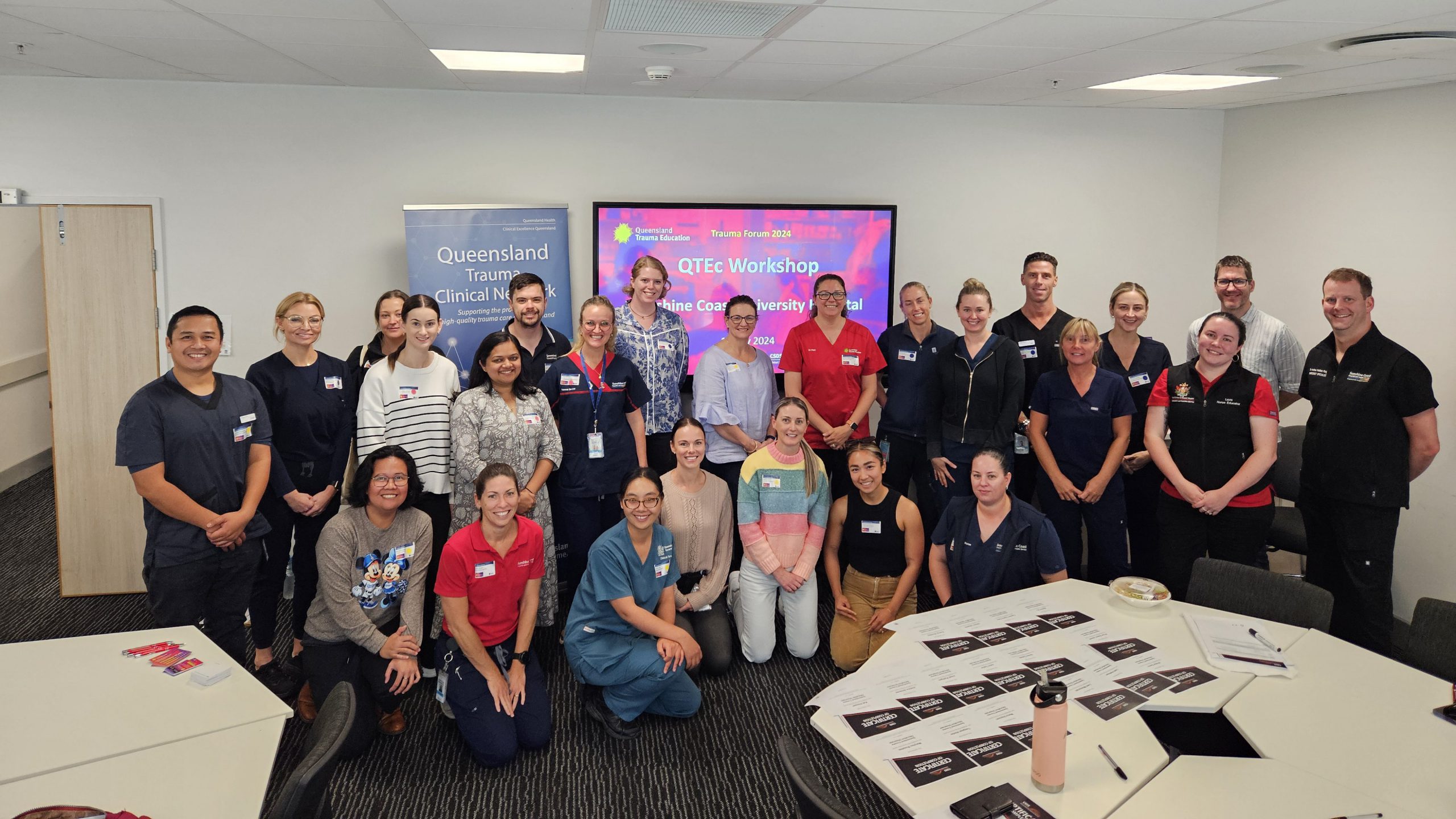
We expanded our maternity education program
We delivered our award-winning Maternity Education Program to 804 healthcare professionals across the state over 104 sessions. Coming off our $2.2 million Rural and Regional Birthing Services Grant in 2023, we delivered this program to 424 healthcare professionals across 13 hospital and health services over 50 sessions (Metro North: 82, Central Queensland: 63, West Moreton: 56, North West: 32, Cairns: 32, Torres and Cape: 31, South West: 30, Darling Downs: 29, Central West: 23, Townsville: 19, Metro South: 12, Mackay: 9, and Sunshine Coast: 6.
This year, we updated our resources for breech, fetal pillow, assisted vagina birth, shoulder dystocia, airway, and uterine inversion. We included other professional disciplines for our MEP Foundation course: Royal Flying Doctors Service, Queensland Ambulance Service, and Nursing. We also collaborated with Retrieval Services Queensland to add realism to our simulations.
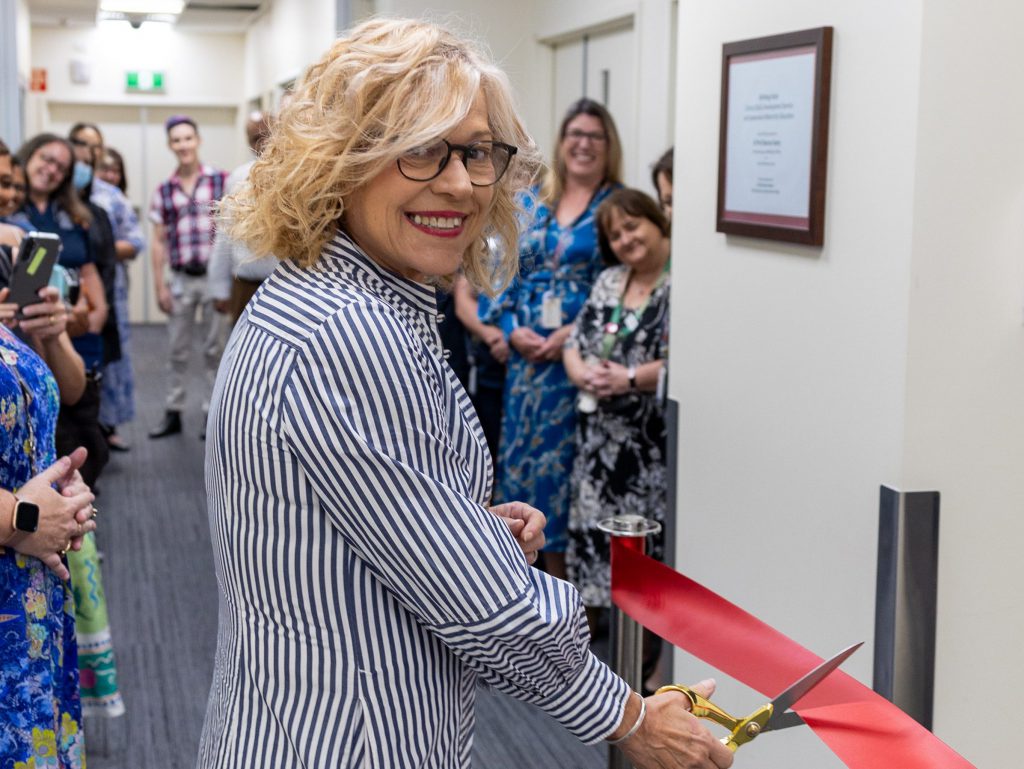
Related posts:
- Join our Faculty: Obstetricians needed for maternity emergency training
- Bringing birth to life at the 2025 #GoHealth Careers Expo
- From Training to Triage
- A busy season for our Maternity Education Team
- Pioneering work in maternity care
Focus area #2: Adapt and innovate new ways of delivering a statewide service to healthcare professionals
We continued growing our network
We established a Pocket Centre Engagement Strategy to better support Queensland Health clinicians, streamlining the Simulation Provider Program registration process and improving the on-the-road course booking experience. In addition, we incorporated a range of innovative solutions to enhance the quality and impact of our simulation events, ensuring more efficient and engaging training opportunities across the state.
To date, we’ve supported 138 Pocket Centres throughout the state, enabling them to conduct 5,552 simulation events. This support contributed to an impressive total of over 111,000 educational hours, using 3,410 different simulators, task trainers and controlling devices and 267 complex (feedback and control) planned service manikins. Beyond this, we dedicated over 6,800 hours, 810 unique replacement parts and products, and cost savings of approximately $300,000 to the maintenance, repair, and support of simulation equipment to assist our Pocket Centres.
We updated our digital properties
We’ve begun our transition to the Queensland Health Design System, converting all our digital properties to adopt its guidelines. Developed by the Digital Transformation Team at Queensland Health, this design system ensures a consistent look, feel, and user experience across all platforms. By standardising our interfaces, we aim to provide a coherent, user-focused experience that supports our growing user base and helps them easily navigate our services.
We developed a Simulated Participant Program
The Simulated Participant Program ensures the consumer voice is heard and integrated into our simulation-based healthcare education. A simulated participant is coached to accurately and consistently portray roles, personality traits, emotions, and physical findings, creating realistic scenarios for learners. Aligning with the tenets of the Collaborating in Health Strategy 2022-2024, this program strengthens the collective voice of consumers and communities we serve. By enhancing simulation fidelity and learner outcomes, this program ensures that healthcare training and education reflects real-world diversity and consumer perspectives. This approach ultimately strengthens the delivery of safe, high-quality care across the healthcare system.
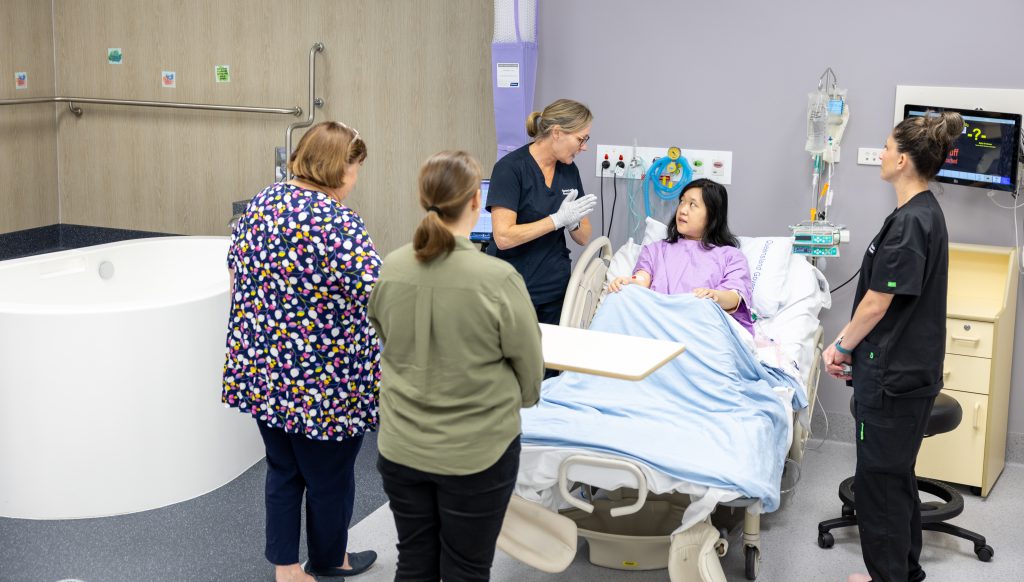
We re-launched our Fellowship Program
Our Fellowship Program provides healthcare professionals across Queensland with opportunities to enhance their expertise and drive meaningful change in the healthcare system. Led by Beth Wray, we welcomed two Fellows this year, Adam Sattar and Caitlin Sale. The program combines immersive experiences, educational tools, and diverse perspectives to strengthen clinical knowledge and skills. Beyond the Fellowship, our Faculty Network supports ongoing development and lasting contributions to healthcare delivery.
Related posts:
- How a CSDS Fellowship shaped Caitlin’s path in Healthcare Innovation
- A Fellow’s journey at CSDS – development, innovation, and professional growth
- Reshape healthcare with the CSDS Honorary Fellowship
- #HcSimWeek: Fellowship success with CSDS
We launched the Queensland Innovation Living Lab
After receiving $100,000 in funding from the Healthcare Improvement Unit, Clinical Excellence Queensland, Stephen Poyser led the procurement of advanced equipment to upscale our usability testing, taking it to the next level. The new equipment allows us to capture a range of physiological variables, including brain activity (EEG), heart rate (ECG), arousal (skin conductance), muscle activation (EMG), visual attention (eye-tracking glasses), and mood (high fidelity cameras that capture micro-expressions). Our usability testing service is known as the Queensland Innovation Living Lab (aka QuILL or the Living Lab).
QuILL is a testbed for healthcare professionals, researchers, digital specialists, and consumers to work together to evaluate and refine medical devices, software, and processes. QuILL leverages our new technology to capture end-user’s cognitive and physiological states, including stress, attention, workload, and overall experience. At QuILL, we conduct usability testing to support data-driven procurement decisions, clinical incident reviews, and ensure that new innovations are co-designed and fit-for-purpose.
Since QuILL’s launch, we have hosted a number tours to provide stakeholders with an inside look at our facility. This included a visit from the Human Factors and Ergonomics Society Australia (HFESA) Conference delegates in November this year, where 16 participants had the opportunity to observe a maternity simulation and an education session run by our Simulation Team using Sim Mom. These tours not only highlight QuILL’s advanced usability testing methods but also foster meaningful connections, knowledge exchange, and collaboration among healthcare professionals, researchers, and industry experts.
Focus area #3: Grow and maintain partnerships
We published four articles
- McLeod, K. M., Hampton, S. E., Sucalit, R. C., Santomauro, C. M., & McLanders, M. L. (2024). Learning the manoeuvres to manage shoulder dystocia: A pilot study comparing the effects of 3D-animation and 2D-images in training materials. Clinical Simulation in Nursing (In Press). https://doi.org/10.1016/j.ecns.2024.101659
- Antoine, J., Dunn, B., McLanders, M., Jardine, L., & Liley, H. (2024). Approaches to neonatal intubation training: A scoping review. Resuscitation Plus, 20, 100776. https://doi.org/10.1016/j.resplu.2024.100776
- McLeod, M., Owens, L., Williamson, F., Faulkner, B., & McLanders, M. (2024). Queensland Trauma Education (QTE): an innovative simulation program that addresses the needs and barriers of interprofessional trauma care education across a complex landscape. Rural and Remote Health. https://pubmed.ncbi.nlm.nih.gov/38909986/
- Santomauro, C., McLanders, M., & Rae, A. (2024). Experiences of rural clinicians accessing specialist support via telehealth for trauma and emergency care in Queensland, Australia. Digital Health, 10, 20552076241251950. https://doi.org/10.1177/20552076241251950
We published 21 conference abstracts and papers
This year was one of our busiest on record, with 19 of our colleagues contributing to a range of conference presentations and scholarly outputs.
- McLeod, K., Desselle, M., Byram, I., Wainwright, L., Coyer, F., Kirrane, M., Henderson, C., & Host, D. (2024, November 25-27). Human Factors approach to redesigning proning pillows in the ICU. HFESA 2024 Annual National Conference, Brisbane.
- McLanders, M., Lai, M., Wang, R., Clement, J., Hose, K., Santomauro, C., & McGrory, K. (2024, November 25-27). Investigating Unplanned Intubation in the Neonatal Intensive Care Unit. HFESA 2024 Annual National Conference, Brisbane.
- Tully, J., Kim, J., & McLanders, M. (2024, November 25-27). Improving Process Flow within a Healthcare Simulation-based Training Facility. HFESA 2024 Annual National Conference, Brisbane.
- Kim, J., Nancarrow, W., McLeod, K., & McLanders, M. (2024, November 25-27). Validation of a novel Intercostal Catheter Insertion (ICC) Part-Task Trainer. HFESA 2024 Annual National Conference, Brisbane.
- Wang, R., Lai, M., Santomauro, C., Clement, J., McGrory, K., Hose, K., Chapple, L., & McLanders, M. (2024, November 25-27). Securing Endotracheal Tubes Safely and Accurately in Tiny Patients (SIGNATURE). HFESA 2024 Annual National Conference, Brisbane.
- Santomauro, C., Wray, B., Best, D., & McLanders, M. (2024, November 25-27). Wearable Augmented Reality for Telehealth: A Simulation-Based Evaluation. HFESA 2024 Annual National Conference, Brisbane.
- Canning, M., Stone, K., Singh, D., & Campbell, R. (2024, 14-16 November). Development and evaluation of two intravenous iron online learning packages. Medicines management annual conference, Adelaide.
- Swift, E., Peberdy, L., & Barker, M. (2024, November 15). Women Want Water: Improving access to Water Immersion for Labour and Birth. Australian College of Midwives Conference, Northern Territory.
- Swift, E., & Bender, J. (2024, November 15). Towards Improved Maternity Care: Improving the delivery of the Maternity Education Program (MEP) to Regional, Rural and Remotes (RRR) Hospital Health Services across Queensland. Australian College of Midwives Conference, Northern Territory.
- Pope, J., Peberdy, L., & Barker, M. (2024, November 15). Water Immersion for Labour and Birth (WILB). Metro North Nursing and Midwifery Showcase, Brisbane.
- Swift, E., & Bender, J. (2024, November 15). Water Immersion for Labour and Birth (WILB). Metro North Nursing and Midwifery Showcase, Brisbane.
- Santomauro, C., Best, D., Wray, B., & McLanders, M. (2024, November 13 – 15). Exploring the Feasibility of Wearable Augmented Reality for Telehealth: A Simulation-Based Evaluation of the Microsoft HoloLens 2. Successes and Failures in Telehealth Conference, Brisbane.
- Billingsley, H., Stone, K., Alexander, C., Walker, T., Collie, L. & Kim, J. (2024, November 6-8). Developing an online learning package to improve clinician efficacy with the Panda Warmer resuscitation system. BMJ International Forum, Brisbane, Australia.
- McLeod, K., Campbell, V., Mehta, N., Lynch, J., & Gifford, S. (2024, November 6 – 8). Designing Functionality and Safety in Early Warning Tools: A Human Factors Approach [Poster presentation]. BMJ International Forum, Brisbane, Australia.
- Barker, M., & Peberdy, L. (2024, September 10 – 12). Moving midwifery forward: Improving access to water immersion for labour and birth. Australian College of Midwives (ACM) National Conference, Melbourne.
- Lai, M., Santomauro, C., Wang, R., Clement, J., McGrory, K., Hose, K., Chapple, L., & McLanders, M. (2024, 2-4 September). Securing Endotracheal Tubes Safely and Accurately in Tiny Patients (SIGNATURE). Herston Health Precinct Symposium, Brisbane.
- Percival, V., Gavin, N., McLeod, K., & Gifford, S. (2024, June 19 – 21). A nursing assessment tool to improve the flow and safety of patients receiving a lumbar puncture [Poster presentation]. Cancer Nurses Society of Australia (CNSA) 26th Annual Congress, Brisbane, Australia. https://www.cnsa.org.au/events/event/cnsa-congress-brisbane
- Hall, M., Young, M., & Stone, K. (2024, June 11-13). Mpox intradermal vaccination blended learning course: an evaluation. (Oral Presentation). Communicable Diseases & Immunisation Conference, Brisbane.
- McLeod, K. (2024, June 5 – 7). “Practice like you play, because you’ll play like you practice”: Improving simulation training through contextual interference. Simulation User Network (SUN) Conference, Broadbeach, Australia.
- Barker, M., & Peberdy, L. (2024, May 3 – 4). Improving access to water immersion for labour and birth: Development of a Water Immersion for Labour and Birth Education Package. Australian College of Midwives (ACM) State Conference, Queensland.
- Poyser, S. (2023, December 6–7). Manikins Gone Hypercolour: Investigating Thermochromics in Simulation. ACU Simulation Showcase, Brisbane.
We celebrated our 20th anniversary
This year, we proudly celebrated our 20th anniversary. Planning began as early as November 2023, with three key objectives guiding the celebrations: enhancing visibility, sharing our stories, and fostering innovation and collaboration.
To enhance our visibility within the broader Queensland Health, we officially kicked off our 20th anniversary celebrations this September with the CSDSx20 Symposium. The symposium highlighted the latest development in clinical skills across the state. It included two key sessions: a series of lightning presentations from our renowned speakers and a thought-provoking panel discussion.
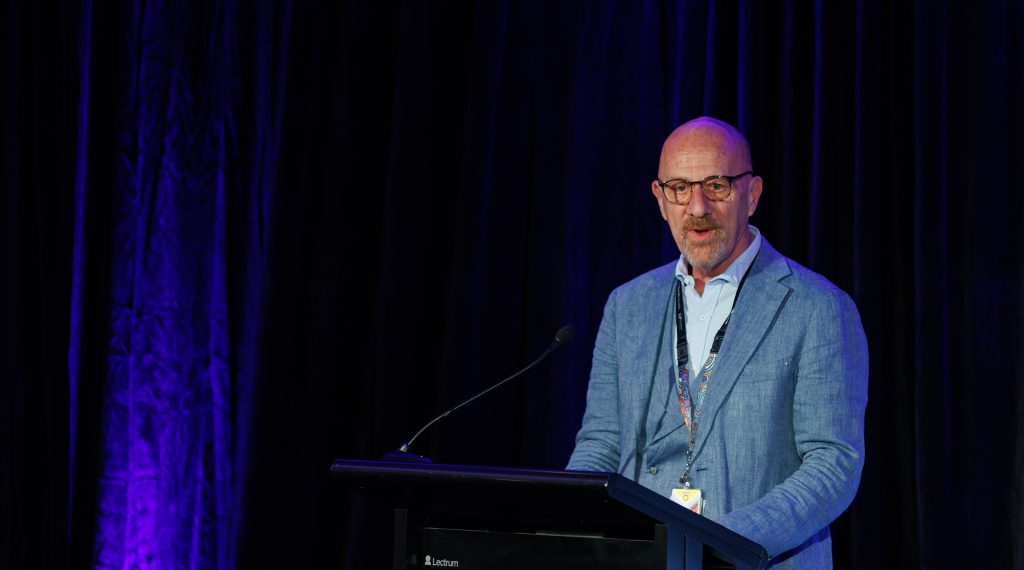
This year, we were fortunate to have been joined by the following speakers: Dr Mia McLanders (Research Manager, CSDS), Kim Gourlay (Simulation Coordinator, The Prince Charles Hospital), Dr Nathan Peters (Specialist Anaesthetist, Wesley Anaesthesia and Pain Management), Michael Guerin (Nurse Educator, Rockhampton Hospital), Dr Toby Lyndham (FACEM and EMET Lead, Rockhampton Region), Dr Ben Symon (Clinical Director of Simulation, Mater Education), Andi Thompson (Nurse Educator, Princess Alexandra Hospital), Dr Chirag Patel (Staff Specialist in Clinical Genetics, Genetic Health Queensland), Melissa Andison (Director, People Before Technology), and Ross Hadfield (Strategic Advisor, WeKo).
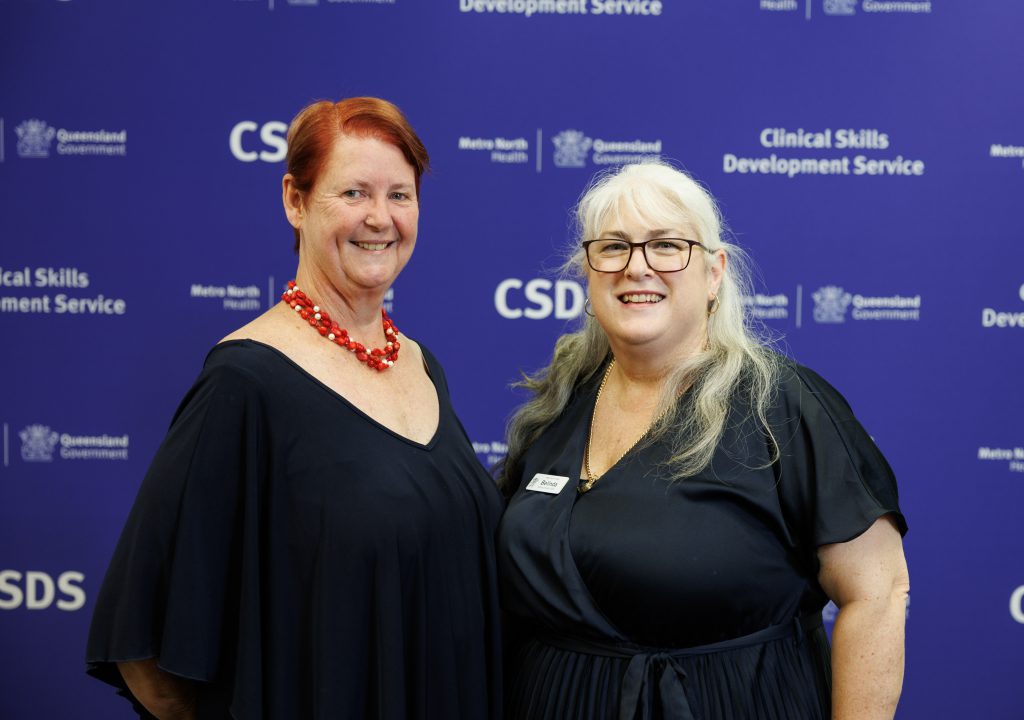
To foster innovation and collaboration, we collaborated with the Helix Hub to organise the CSDSx20 Hackathon, an event that brought together participants from 11 health services and the Department of Health. Over four weeks, teams tackled pressing challenges to improve clinical skills development across Queensland. The winning pitch, AirwayX eFONA Education, tackled a crucial gap in emergency airway management. Emergency front-of-neck access is a rare yet life-saving procedure, performed in approximately 1 in 5000 cases. Despite its importance, many clinicians lack up-to-date formal training.
The success of CSDSx20 Hackathon is a testament to the dedication and talent within our healthcare community. By creating spaces like this hackathon, we continue to empower healthcare professionals to develop solutions that transform clinical practice and improve patient outcomes across Queensland.
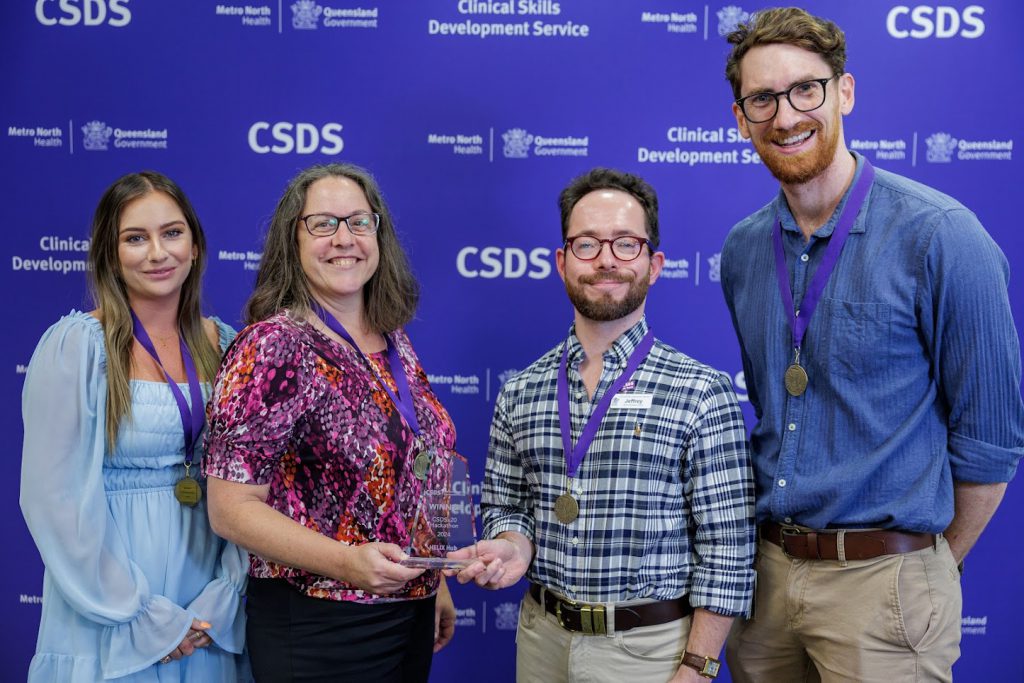
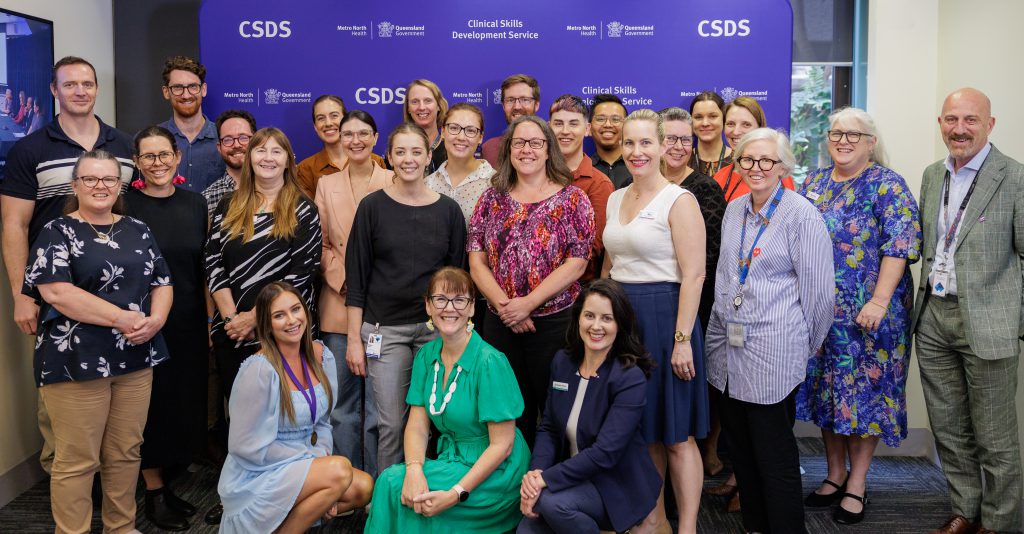
We partnered internationally
The International Liaison Committee on Resuscitation, Neonatal Life Support Task Force convened in Toronto, Canada, bringing together global leaders in resuscitation. Dr Mia McLanders was invited to guide the design of emergency algorithms whose recommendations were grounded in evidence generated by her team including Dr Kirsty McLeod and Rebecca Wang. Their Human Factors design principles reflect best practice in usability, safety, and clinical decision-making to improve outcomes for resuscitation.
We have an ongoing international collaboration with industry partners to redesign the head skin of our 3G Plus manikin. This initiative will introduce the capability for the manikin’s eyes to blink during Bag Mask Ventilation training, creating a more realistic simulation environment. The goal is for learners to better recognise and respond to patient cues, ultimately enhancing the quality of their clinical decision-making and skills in critical care scenarios.
We collaborated with local partners
We collaborated with the Clinical Excellence Queensland to produce the Patient Safety and Quality Podcast. This podcast is designed to extend educational resources to clinicians, executive boards, and clinical governance teams.
We were invited to Liquid‘s Future Led panel discussion where six experts were invited to challenge the status quo of healthcare funding. Dr Mia McLanders represented us where she discussed healthcare innovation and challenging traditional funding priorities.
We collaborated with the Speech Pathology Departments at the Royal Brisbane and Women’s Hospital and the Princess Alexandra Hospital, with the support of the Queensland Health Speech Pathology Advisory Committee to produce a series of educational videos aimed at enhancing the knowledge and basic clinical skills required for the management of an adult with a tracheostomy.
We also supported Metro North Health, the Queensland Health’s Office of the Chief Midwifery Officer, and the Office of the Chief Nursing Officer at the #GoHealth Careers Expo, which was designed to help students explore health careers. CSDS also welcomes students to tour our centre—reach out to us if you would like to book a tour.
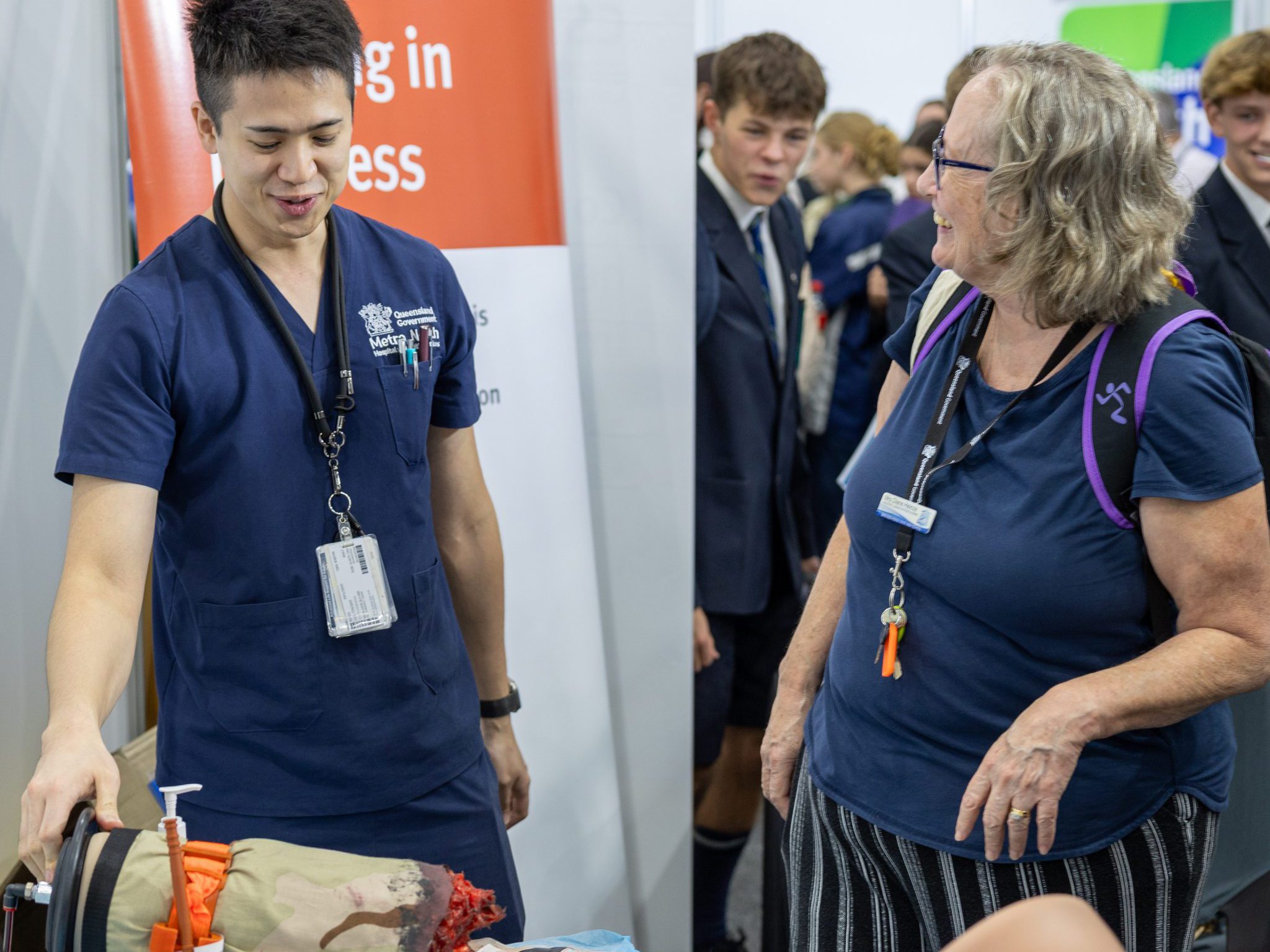
We were recognised
We won the Voter’s Choice Award for the Water Immersion for Labour and Birth (WILB) poster by Elisha Swift and Jacob Bender in the 2024 Metro North Nursing and Midwifery Showcase.
In its tenth year, Metro North Health celebrated the extraordinary achievements of its staff with more than 300 nominations across fourteen categories. This year, we were honoured as finalists in both the Emerging Leaders and Performance categories. Raden Sucalit was recognised among Emerging Leaders, while Rebecca Wang and Dr Mia McLanders, in collaboration with Dr Mel Lai of the RBWH Neonatal Intensive Care Unit, were acknowledged in the Performance category for their exceptional partnership.
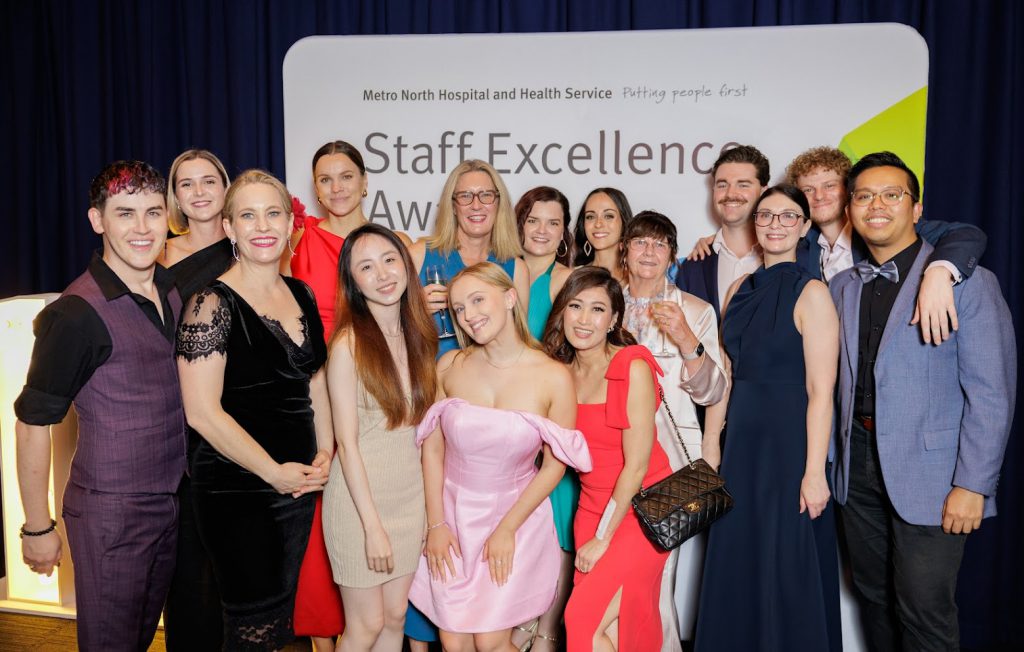
Focus area #4:Support and retain a modern workforce
We implemented Clinical Supervision
We have proactively prepared Metro North Health to implement Clinical Supervision by building leadership capability, promoting understanding, strengthening culture, and ensuring the right resources are in place. This year, we directly assisted 114 individuals, ran 10 informal sessions, delivered 9 formal presentations, and staffed 8 information booths.
To further support accessibility, we created a Clinical Supervision blog, intranet page, and website, and reinstated the Clinical Supervision Advisory Committee. Our efforts have strengthened capacity through training 14 supervisors, providing monthly supervision to 7 groups and 19 individuals, and developing a formal procedure and coordinator role description.
We are collaborating across Metro North, state-wide, and interstate (ACT Health), and responding to requests from metropolitan, regional, and rural areas. Internationally, we partnered with the University of Nottingham to train 6 supervisors in Resilience Based Clinical Supervision, with an additional 3 supervisors set to begin Reflective Practice Group training in 2025.
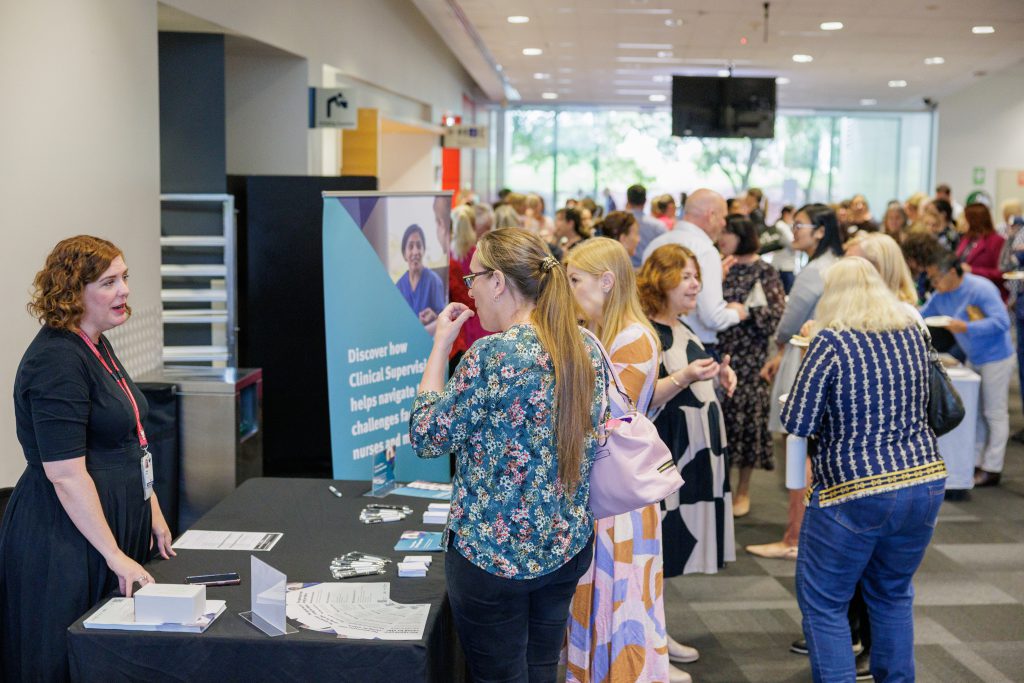
We started the Compassionate Care Principles Project
In August 2024, we received approval to develop a suite of resources aimed at supporting ongoing education and awareness of the Metro North Compassionate Care Principles. To guide this work, a project Advisory Group—comprising staff and consumers—was established in September 2024, with an endorsed Terms of Reference and monthly meetings. As part of the project, 22 patient stories from across Metro North Health have been reviewed, with preferred stories being explored for publication. One story is already in production, showcasing real experiences that reflect and promote the principles of compassionate care.
We celebrated and supported our team
During Men’s Health Week, we hosted a morning tea to emphasise the importance of social connections, with Patrick Guerrera’s presentation highlighting the health risks of isolation and the profound benefits of “mateship” for physical and mental well-being. Similarly, during Queensland Women’s Week (#QWW24), we celebrated the incredible contributions of women with a morning tea featuring Dr Lisa Peberdy, who shared her inspiring career journey, from volunteering in East Timor during the 1999 uprising to performing lifesaving procedures in Samoa. These events underscore our commitment to creating a supportive, inclusive environment where everyone at CSDS feels valued and cared for.
Year-end closure
As the holiday season draws near, our team is preparing to take a well-deserved break, returning refreshed and recharged on the 6th of January. With warm regards from all of us at CSDS, we extend heartfelt wishes for a joyful holiday season and a fantastic start to the new year!









